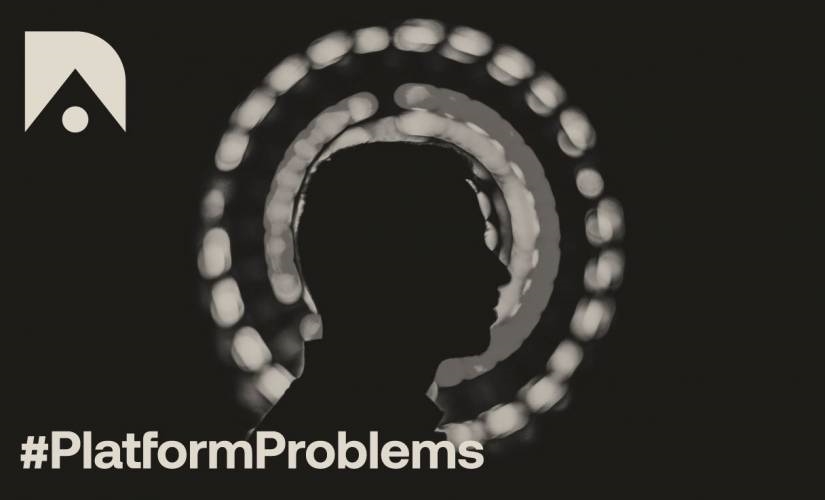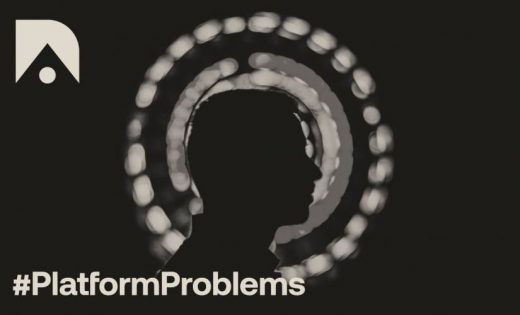Open Applications and Solving the Future of Platform Economics
Open Applications and Solving the Future of Platform Economics

Throughout 2019 we’ve witnessed the blockchain landscape shifting from a strong focus on enterprise use cases to the introduction of new technical layers within the ever-evolving “stack” to now the rise of decentralized applications (dApps). As this part of landscape expansion, further focus comes around the challenges of data, privacy, and the future economics models that will power the applications of tomorrow.
With many of the world’s most influential companies developing the platforms of which small businesses have building upon, these topics are of timely importance. The current platform economy has created a growing list of unintended consequences for the users and the companies that have depended on them. We’ve seen platforms unilaterally decide and change whether they own payments, user data, and compliance putting businesses in a position to be dependent on the very platforms for security and user privacy. In other cases, companies can be thrown off a platform, shut down, or buried by the platform at any time, either intentionally or unintentionally, forcing unanswered shutdowns and lost customers.
Until recently, platforms haven’t been incentivized to build products and tools that make it easier for companies to be independent. That’s now changing as we see users wanting the ability to freely take their data (views, credits, reputation, etc.) from one application to another easily. Additionally, companies are making an effort to transact and work directly with their customers without platform intermediary and even going as far as to create a simple voting mechanism for any stakeholders to make any decisions.
The Aion Network, now The Open Application Network (The OAN), has announced its plans this week to focus on these emerging and significant challenges faced by the platform-economics of today while laying a foundation for tomorrow. “The current platform ecosystem just doesn’t benefit businesses the way that it could,” said Matt Spoke, co-founder and CEO of The Open Application Network. “Tomorrow’s success stories won’t be built on (November 14, 2019)’s platforms, but rather, they will become open and will design with their user’s interests in mind. Today’s platforms can enable this new design space with new tools to access Open Apps that extend the capabilities of these important ecosystems. I am excited for the opportunity for The Open Application Network to own this space and start building solutions for these businesses.”
When speaking about the decentralized applications (dApps) part of the blockchain landscape, Spoke added, “Although technically interesting, dApps have failed to find product-market fit, with maybe a few exceptions. The launch of the Open Application Network is the first step towards finding a relevant narrative and go-to-market strategy that we can bring to Silicon Valley, and use to influence the way companies to operate and are built in the future. Platform economies are growing, and are causing unintended negative outcomes. We have an opportunity to change the trajectory of how online businesses interact with their users and stakeholders through the use of Open Apps that augment these important ecosystems.”
The OAN will shift a meaningful portion of its engineering towards building the tools and libraries necessary, known as Open Kits, which will provide developers a natural path towards building Open Apps. The OAN is an open-source, public infrastructure that creates a new design space for Open Applications. Open Apps are programs that will put users back in control and are universally accessible across platforms. Developers who use Open Apps can hook into existing platforms like Uber, Shopify, Twitch, etc. and create new experiences.
The OAN team has already begun work on its first Open Kit – Open Economy. Open Economy allows developers to integrate features into their applications that enable the creation of their own micro-economy – creating rewards, badges, or other incentive programs for their users to use inside or outside of various platforms.
Velocia, a partner of The OAN, has already integrated some of the Open Economy features. Velocia is working to change the way people move around cities by incentivizing them for a better, healthier, and cleaner commute. It does this through a network of partners, including SwiftSeat, GetAround, Bolt, Citi Bike Miami, and Miami Dade County. Rapidly expanding in Miami and South Flordia, Velocia users earn and redeem VELOS across the partner network. The OAN provides Velocia with a public infrastructure to integrate and broaden VELOS’s usage into different platforms and other Open Apps.
“We believe this is the future of the platform economy – providing businesses and individuals with the ability to benefit from a platform, and yet for their work, data, and relationships to be universally accessible,” said Spoke. “We want Open Applications and The Open Application Network to be the quickest, easiest, and most efficient way for businesses to extend their capabilities and design their products with users at the center. Software is becoming more open, and the companies that succeed over the long term will get ahead of this trend.”
Open Economy is available today through a partnership with The OAN, and the API will publicly launch later in 2019. Additional Open Kits such as Open Governance, Open Identity, and Open Funding will be available for integration and APIs releasing in 2020.
“Solving the specific platform challenges we are seeing today is possible with tech, but not with the same tech that generated the problems in the first place. Aion and the Open Application Network are thrilled to be part of a new paradigm to build truly open systems and economies for the common good; a place where applications can be developed that are truly open and outside the bounds and economic interests of these overly dominant platform companies,” said Spoke.
The post Open Applications and Solving the Future of Platform Economics appeared first on ReadWrite.
(49)


